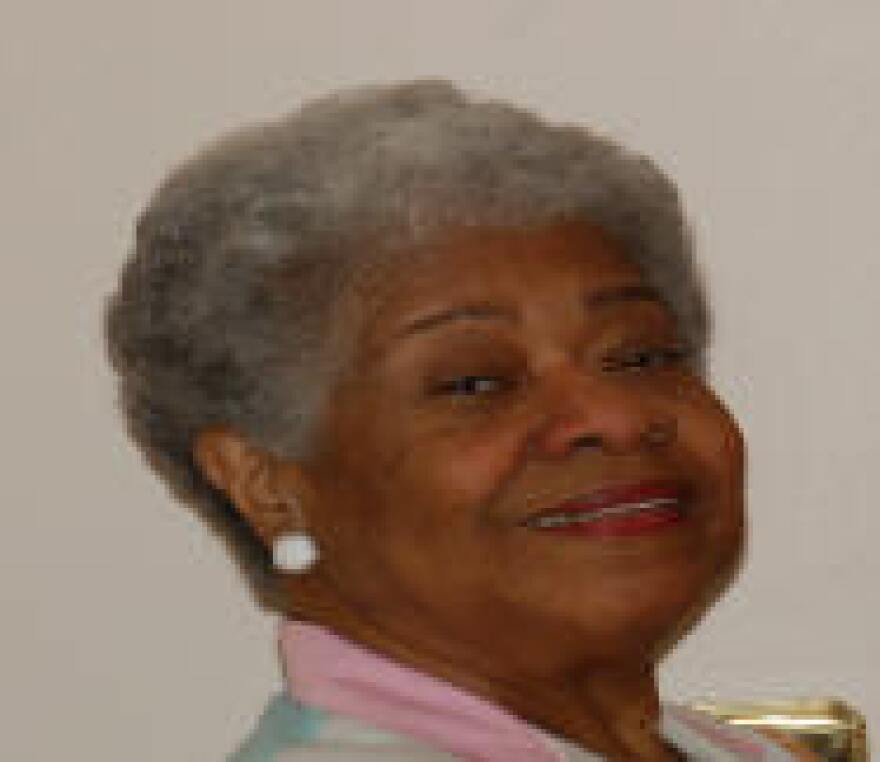The Williston Alumni Association is celebrating the Wilmington school’s 100th anniversary. Embedded in that century-long history is a period that graduates recount with deep nostalgia – even love. Before 1968, Williston was an all-black senior high school. And while the luminaries from that time are prolific in number, it was the teaching staff that made “the greatest school under the sun” possible.
Bertha Boykin Todd served as Librarian of Williston Senior High School for 14 years. After opening as a public school in 1915, Todd was the only librarian that the segregated, all-black school ever had.
In 1952, Todd had no idea that she was launching what would turn into a 39-year career in the New Hanover County Public School System. She did know, however, that this was the first time in her life that she would reluctantly part ways with her twin sister.
---------------------------------
BT: So I came to Wilmington kicking and screaming.
RLH: By 1954, the Supreme Court handed down a pivotal decision for civil rights…
BT: …Desegregation of the schools. And I’ll say desegregation all of the time because I don’t believe in integration. The schools are really not integrated. The housing properties are really not integrated. Integration is a broad-based idea and word. Desegregation means that you’ve got a token over here and you have a token over here and you may have two or three tokens. That’s desegregation to me.
RLH: It wasn’t until 1968 that a federal judge ordered the desegregation of New Hanover County Schools. So the Board voted to close Williston and move African-American students into Hoggard and New Hanover High Schools – what had been traditionally white schools.
BT: At Williston I found the teachers very committed to academics. And of course I consider myself an academician, anyway. So I just simply fell into the environment, the atmosphere of telling all of the students we had to do doubly-well in order to even be considered.
RLH: As Bertha Todd describes each unique tradition that made Williston “the greatest school under the sun”, a fondly-remembered slogan among alumni, she holds the experience up against her ensuing 17 years at Hoggard High School. Segregated schools, segregated memories.
BT: At Williston, the black teachers as well as the principals worked very closely with the students whether in the community, whether in the home, whether in the school atmosphere and we practiced 100% in loco parentis.
RLH: Translation: in place of a parent.
BT: We not only worked with the students in the academic area. If that student was concerned about something or was having trouble at home, then we delved into that.
RLH: Compare that to Hoggard, says Todd, where white parents preferred teachers stick to the curriculum. The other issues they would handle at home.
At Williston, the school principal ordered Todd to populate the library with books about people of color.
BT: If a person knows about his or her legacy and the ancestors and the forebears, then they will develop a bit of pride and self-esteem and be less likely to act out. If you don’t know who you are, then you don’t know where you’re going. If you don’t know where you’re going then you’ll probably go down the wrong path.
RLH: Black history was taught year-round.
BT: It was integrated into the subject matter. Any time the teacher knew mathematicians, Benjamin Banneker, all of those individuals, they were incorporated in whatever the teacher was telling. Now, when I was assigned to Hoggard High School, this was all forgotten.
RLH: Why?
BT: Well, the white teachers didn’t know the black history in the first place. And there were not enough black teachers in the school.
RLH: Todd says she worked with the School Superintendent to institute Black History courses at both Hoggard and New Hanover High Schools. Whether those courses are still available, Todd says she has no idea.
Once students graduated from Williston, Todd says they left town immediately to find jobs. But the tide has turned in Wilmington – a little – she says. Some Williston graduates are returning.
RLH: Why are they coming back now?
BT: They have found that Wilmington has progressed – maybe not as far or expanded as much as some of the other cities in North Carolina, but certainly Wilmington has made progress. And I’m willing to say that myself. Wilmington has made progress since 1952 when I came here kicking and screaming.
RLH: Bertha Todd, thank you so much for joining us today.
BT: It’s been a pleasure. It’s really been a pleasure.
----------------------------
As Williston’s first and only librarian, Bertha Todd taught students that education is the passport to life. Part of that lesson was about the importance of reading, so she created the first county-wide book fair.
"Being an avid reader at the time, I sponsored, and I asked my principal if I could do that, sponsored the first countywide book fair in New Hanover County. The schools were segregated, and of course, the white schools were not participating. I did tell the supervisor that she could invite them if she preferred. I did not feel as if was my place to do that."
The school closed in 1968 after a federal judge ordered New Hanover County to desegregate its schools. Some notable Williston graduates include Former MIT Chancellor Phillip Clay, Tennis Star Althea Gibson, Civil Rights Activist Joseph McNeil, and Superior Court Judge Ernest Fullwood.


